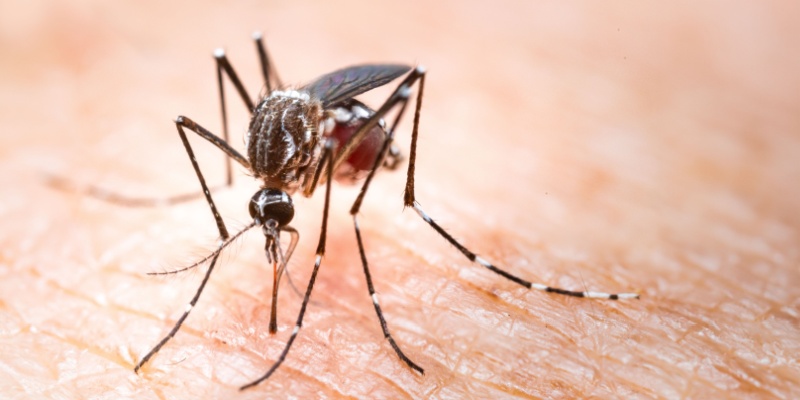As Indianapolis residents venture outdoors to enjoy warmer weather, many find themselves swatting away an all-too-familiar pest: mosquitoes. If you've noticed these bloodsucking insects seem particularly abundant during certain months, you're not imagining things. Several factors make mosquitoes especially problematic in the Indianapolis area during late spring through early fall.
The Perfect Storm of Conditions
Indianapolis creates an ideal environment for mosquito proliferation due to a combination of factors that align perfectly during the warmer months:
Temperature Patterns
Mosquitoes thrive when temperatures consistently stay above 50°F, with optimal breeding occurring between 70-90°F. Indianapolis's climate delivers these conditions from May through September, with July and August typically being peak mosquito months. The city's urban heat island effect can also extend the mosquito season longer than in surrounding rural areas.
Rainfall and Humidity
Central Indiana's precipitation patterns significantly impact mosquito populations. Several key factors make our region particularly vulnerable:
- Spring rainfall: April and May typically bring abundant rainfall to Indianapolis, creating numerous standing water sites
- Summer thunderstorms: Brief but intense summer storms create temporary puddles and water collections
- High humidity: Indianapolis summer humidity levels often exceed 70%, providing ideal conditions for mosquito activity and survival
- White River watershed: The extensive watershed creates natural breeding grounds throughout the region
Just one inch of rain can create enough standing water to produce thousands of mosquitoes, and most species need only 7-10 days to complete their life cycle from egg to adult.
Urban Environment Factors
The Indianapolis metropolitan area provides unique advantages for mosquitoes:
- Storm drains and catch basins: These infrastructure elements retain water and serve as protected breeding sites
- Residential breeding sites: Bird baths, gutters, toys, flowerpots, and other common items collect water in thousands of yards
- Abandoned properties: Foreclosed or neglected properties often contain unattended swimming pools or water features
- Construction sites: Building projects create depressions and water-collecting materials
The Most Problematic Species
Indianapolis is home to several mosquito species, each with different behaviors:
- Northern House Mosquito (Culex pipiens): Active primarily at dawn and dusk, these mosquitoes are efficient vectors for West Nile virus
- Asian Tiger Mosquito (Aedes albopictus): Aggressive daytime biters that can breed in very small water containers
- Inland Floodwater Mosquito (Aedes vexans): Appears in large numbers after heavy rains and floods
- Eastern Treehole Mosquito (Aedes triseriatus): Breeds in water-filled tree holes and artificial containers
Each species has distinct breeding preferences and biting habits, making comprehensive control challenging.
Health Risks in Indianapolis
Beyond the annoyance factor, Indianapolis mosquitoes can transmit several diseases:
- West Nile Virus: The most common mosquito-borne disease in Indiana, with cases reported annually
- La Crosse Encephalitis: Occasionally reported in Indiana, primarily affects children
- Eastern Equine Encephalitis: Rare but potentially fatal, with occasional animal cases in Indiana
- Potential for emerging diseases: Climate change may expand the range of diseases like Zika virus
The Marion County Public Health Department monitors mosquito populations and disease presence throughout the season.
Effective Control Strategies
To reduce mosquito problems around your Indianapolis home:
- Eliminate standing water: Check your property weekly for water collection in flowerpots, gutters, toys, tarps, and other items
- Maintain swimming pools: Properly chlorinate pools and keep them circulating
- Change water regularly: Replace bird bath and pet water at least twice weekly
- Keep gutters clean: Ensure proper drainage from your roof
- Use larvicides: Apply mosquito dunks or bits to water features that cannot be emptied
- Create barriers: Install fine-mesh screens on windows and doors
- Time outdoor activities: Limit activity during peak mosquito hours when possible
- Use personal repellents: Apply EPA-registered repellents when outdoors
Professional Mosquito Control
For properties with severe mosquito problems, professional control offers significant advantages:
- Identification of hidden breeding sites you might miss
- Access to longer-lasting control products
- Treatment of vegetation where adult mosquitoes rest
- Customized solutions for specific property challenges
At Trio Pest Control, our mosquito management program includes comprehensive property assessment, targeted treatment of breeding and resting sites, and ongoing monitoring throughout the season. Our approach dramatically reduces mosquito populations while minimizing environmental impact.
Don't let mosquitoes ruin your outdoor enjoyment in Indianapolis. Contact Trio Pest Control today for effective mosquito control solutions tailored to your property.
